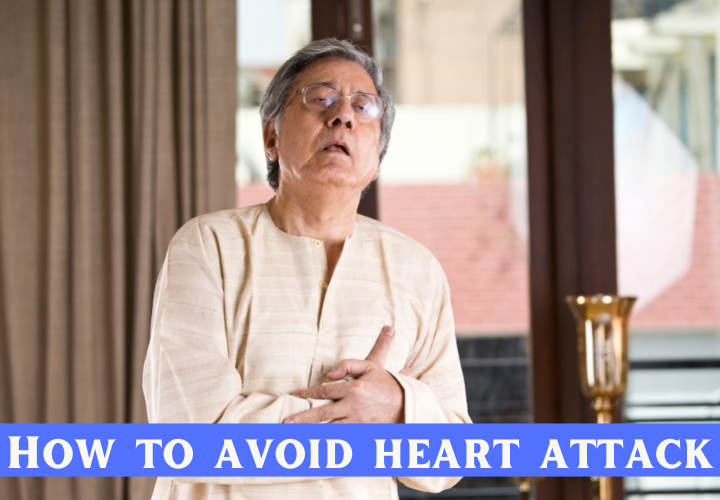Let's see how to avoid a heart attack.
A heart attack is a medical emergency and it can happen when the blood flow to the heart is blocked. When this happens, the cells in the heart tissue die. The most common cause of a heart attack is coronary artery disease, which is caused by fat and cholesterol deposits in the arteries that supply blood to your heart.
The causes of a heart attack can be classified as follows:
-Atherosclerosis: This is one of the most common causes of a heart attack. It occurs when plaque builds up on the inside walls of an artery, narrowing it and making it harder for blood to flow through.
-Aneurysm: An aneurysm occurs when there is a bulge or weak spot in an artery wall. When the pressure in that area becomes too great, it bursts open and cuts off the blood supply to that area.
-Coronary Artery Spasm: This is another common cause of a heart attack where there is spasm or contraction in one or more coronary arteries which blocks off blood flow to that area.
Heart attack symptoms vary depending on the type of heart attack. The most common symptom of a heart attack is chest pain or discomfort, which usually lasts more than a few minutes. Other symptoms can include shortness of breath, nausea, vomiting, and sudden dizziness or lightheadedness.
Chest pain is the most common symptom of a heart attack. It usually lasts more than 10 minutes and may feel like pressure, tightness, squeezing or heavy weight on your chest.
The pain can be mild to severe and often feels like someone is sitting on your chest. It can also feel like indigestion or simply uncomfortable pressure in your chest area that doesn't go away after you rest for a while.
It is important to note that not all heart attacks are the same. Some people experience different symptoms and it is important to know what they are so you can prevent them. Heart disease is the leading cause of death in the United States with 1 in every 4 deaths being related to heart disease. The good news is that many of these deaths could be prevented if people were aware of their risk factors, watched out for warning signs, and took action when they suspected a problem. The following tips will help you avoid a heart attack or cardiac arrest:
1: Get a complete physical exam every year. A regular physical examination is important in detecting heart disease, but it is not always enough. The American Heart Association advises people to have a cardiologist or internist conduct an annual electrocardiogram (EKG) to screen for heart problems or heart rhythm abnormalities like atrial fibrillation, which increases the risk of atrial fibrillation-related death.
2: Eat a nutritious diet high in fruits, vegetables , whole grains, low in saturated fat and sodium. This will help maintain a healthy heart.
3: Lose weight, if needed. Excess body fat can contribute to high blood pressure, which is an independent risk factor for cardiovascular disease and heart attack.
4: Exercise regularly. The American Heart Association recommends aerobic workouts three days a week for 30 minutes each day of brisk walking or jogging; moderate to vigorous exercise five days a week at least 30 minutes each day; strength training two days a week, 10 minutes each day.
5: Avoid smoking. Smoking increases the risk of stroke by up to 70 percent.
6: Get enough vitamin D. People who consume a diet rich in vitamin D are less likely to experience a stroke.
7: Keep blood pressure under control. High blood pressure increases the risk of stroke by more than 60 percent, according to the Stroke Association, and is one of the main risk factors for cardiac events in women.
8: In addition to the above make sure to have plenty of sleep. You should have at least a minimum of 7 hours of sleep every night.


